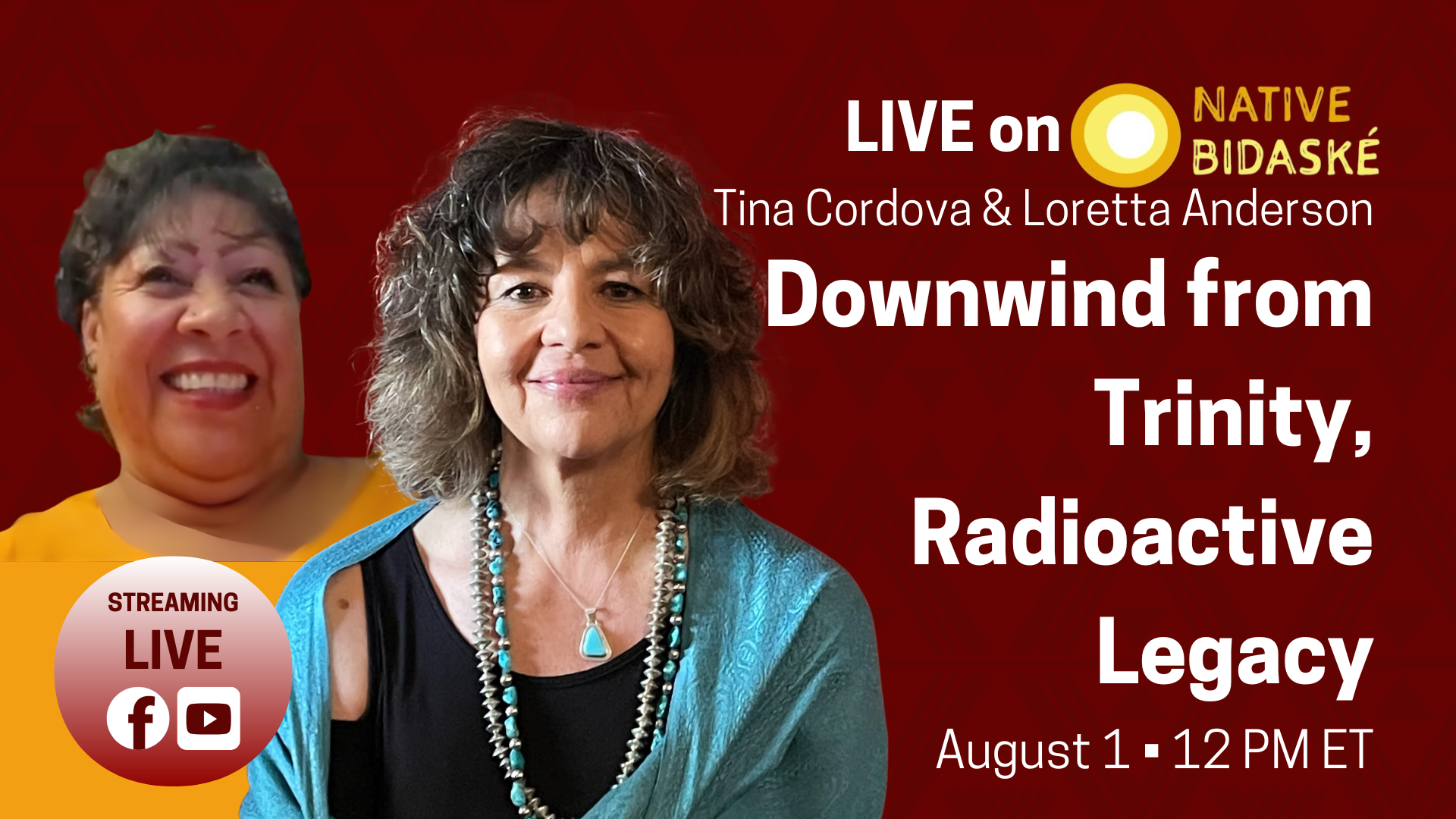
- Details
- By Native StoryLab
Eighty years ago in the New Mexico desert, the U.S. government detonated the world’s first nuclear bomb—the Trinity Test. It changed history and quietly destroyed the health and lives of those living nearby.
What textbooks rarely mention: entire families and tribal communities lived just downwind of that explosion. The fallout didn’t drift harmlessly into the sky—it settled into the soil, water, and the lungs of people who had no warning.
Tina Cordova was one of those people. After decades of watching her family and neighbors suffer from cancer and mysterious illnesses, she co-founded the Tularosa Basin Downwinders Consortium.
Loretta Anderson tells a similar story. From the Pueblo of Laguna, she co-founded the Southwest Uranium Miners Coalition to fight for miners—many of them Native—who were exposed to toxic conditions with little protection.
The fallout today? Devastating. People are still dying. Families are still grieving. Contaminated lands remain unsafe. While some federal programs have offered compensation to affected individuals, vast swaths of Indian Country are excluded.
Last month brought rare hope. Buried in a federal budget bill was a provision to extend the Radiation Exposure Compensation Act (RECA) with $8 billion in aid over two years for those harmed by nuclear testing and uranium mining.
Is $8 billion enough? Join to find out.
🎥 Watch Native Bidaské with Tina Cordova & Loretta Anderson to learn the full story.
TUNE IN:
Date: Friday, August 1st, 2025
Time: 12:00 p.m. ET / 11:00 a.m. CT / 10:00 a.m. MT / 9:00 a.m. PT
Streaming on: Facebook, YouTube, and the Native News Online website
Help us defend tribal sovereignty.
At Native News Online, our mission is rooted in telling the stories that strengthen sovereignty and uplift Indigenous voices — not just at year’s end, but every single day.
Because of your generosity last year, we were able to keep our reporters on the ground in tribal communities, at national gatherings and in the halls of Congress — covering the issues that matter most to Indian Country: sovereignty, culture, education, health and economic opportunity.
That support sustained us through a tough year in 2025. Now, as we look to the year ahead, we need your help right now to ensure warrior journalism remains strong — reporting that defends tribal sovereignty, amplifies Native truth, and holds power accountable.
 The stakes couldn't be higher. Your support keeps Native voices heard, Native stories told and Native sovereignty defended.
The stakes couldn't be higher. Your support keeps Native voices heard, Native stories told and Native sovereignty defended.
Stand with Warrior Journalism today.
Levi Rickert (Potawatomi), Editor & Publisher
